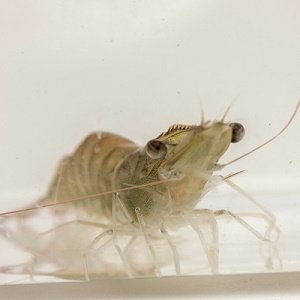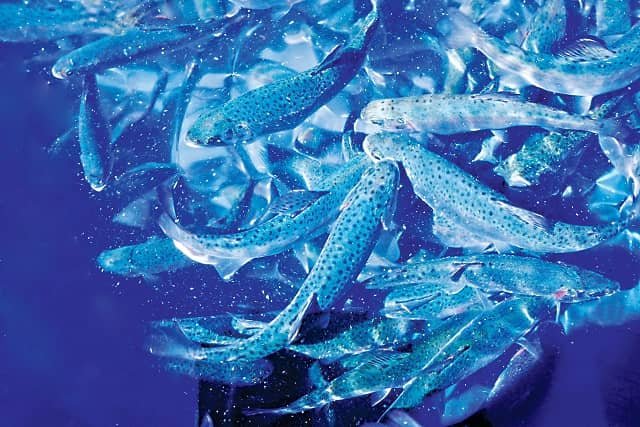
Feed production for Nile tilapia largely relies on soybean meal. However, soybean production may have environmental drawbacks, making it crucial to find alternative protein sources.
A study conducted by researchers at Arish University implemented a feeding trial to evaluate the effect of replacing soybean meal diet with a fermented cottonseed meal (FCSM) on the growth performance, feed utilization, body composition, and economic evaluation of Nile tilapia fingerlings.
The Challenge: Costly Protein Sources
Feed represents a significant portion (60-70%) of expenses in Nile tilapia aquaculture. Traditionally, soybean meal (SBM) has been the preferred protein source for tilapia feed due to its high protein content and affordability. However, rising prices are putting pressure on production costs.
In recent years, cottonseed meal has emerged as a potential input for diets of salmonids, and shrimps, among other aquaculture species.
Why Fermented Cottonseed Meal?
- Sustainability: Cottonseed is an easily available byproduct, reducing dependency on soybean.
- Profitability: FCSM can significantly reduce feed production costs.
- Nutritional Value: Fermentation enhances the nutritional profile of cottonseed meal, making it suitable for tilapia diets. FCSM contains high levels of arginine, an essential amino acid for fish growth, even surpassing levels found in fish meal and SBM.
- Improved Digestibility: The fermentation process breaks down protein molecules into smaller, more digestible components.
While cottonseed meal is traditionally used in animal feed, limitations such as anti-nutritional factors restrict its inclusion levels.
The Power of Fermentation:
Fermentation with bacteria like Bacillus subtilis can enhance the nutritional value of CSM by:
- Breaking down complex proteins into easily digestible peptides.
- Reducing or inactivating anti-nutritional factors present in CSM.
- Potentially improving vitamin availability and fiber quality.
Study Design
Nile tilapia fingerlings were divided into groups and fed diets containing different levels of FCSM, replacing soybean meal (0%, 20%, 40%, 60%, 80%, or 100%).
Stay Always Informed
Join our communities to instantly receive the most important news, reports, and analysis from the aquaculture industry.
The study examined:
- Growth Performance: Weight gain and overall fish health.
- Feed Utilization: Efficiency with which fish convert feed into growth.
- Body Composition: Nutritional value of fish flesh.
- Economic Evaluation: Profitability of using FCSM in tilapia feeds.
Positive Results
Key findings of the study include:
- Replacing soybean meal with FCSM did not affect the survival rate of tilapia.
- Diets fed with 80% or 100% FCSM replacement showed higher final weight, weight gain, and protein efficiency ratio (PER).
- These groups also achieved the lowest feed conversion ratio (FCR), indicating efficient nutrient utilization.
- It’s noteworthy that incorporating FCSM significantly reduced feed production costs compared to the control diet (100% soybean meal). According to the study, the price of 1 kg of diet decreased to 82.93%, 72.93%, 64.71%, 57.66%, and 61.25% for T1, T2, T3, T4, and T5, respectively, compared to the control group (100% price).
Benefits for Fish Farmers
This study demonstrates the potential of fermented cottonseed meal as a viable and cost-effective replacement for soybean meal in Nile tilapia diets. Replacing soybean meal with FCSM at 80% or 100% levels can lead to:
- Reduced feed production costs for tilapia producers. The study reports a significant decrease in production costs.
- Sustainable aquaculture practices through the utilization of a byproduct.
- Maintained or improved growth performance in Nile tilapia.
Conclusion
This study showcases the potential of fermented cottonseed meal as a sustainable and cost-effective alternative to soybean meal in Nile tilapia diets. Replacing soybean meal with FCSM at 80% or 100% levels showed no negative effects on fish growth and even improved some performance metrics. Further research is needed, but these findings are promising for the future of sustainable tilapia aquaculture.
Contact
Abdel Hamid M.S. Eid
Department of Animal Production and Fish Resources, Faculty of Agriculture, Ismailia, Egypt
Email: abdelhamid-eid@yahoo.com
Reference (open access)
Eid et al., A. Effect of replacing soybean meal with fermented cottonseed meal on growth performance and feed utilization of the Nile Tilapia (Oreochromis niloticus) fingerlings. Egyptian Journal of Aquatic Biology and Fisheries, 2024; 28(2): 161-173. doi: 10.21608/ejabf.2024.346450
Editor at the digital magazine AquaHoy. He holds a degree in Aquaculture Biology from the National University of Santa (UNS) and a Master’s degree in Science and Innovation Management from the Polytechnic University of Valencia, with postgraduate diplomas in Business Innovation and Innovation Management. He possesses extensive experience in the aquaculture and fisheries sector, having led the Fisheries Innovation Unit of the National Program for Innovation in Fisheries and Aquaculture (PNIPA). He has served as a senior consultant in technology watch, an innovation project formulator and advisor, and a lecturer at UNS. He is a member of the Peruvian College of Biologists and was recognized by the World Aquaculture Society (WAS) in 2016 for his contribution to aquaculture.







